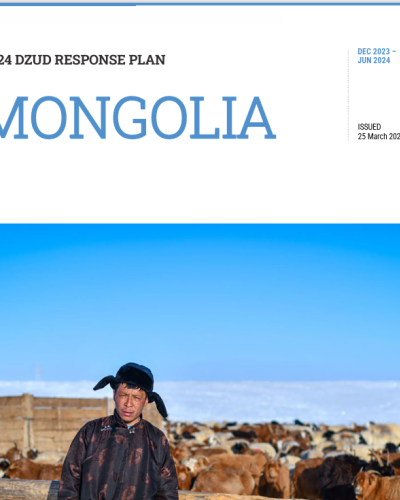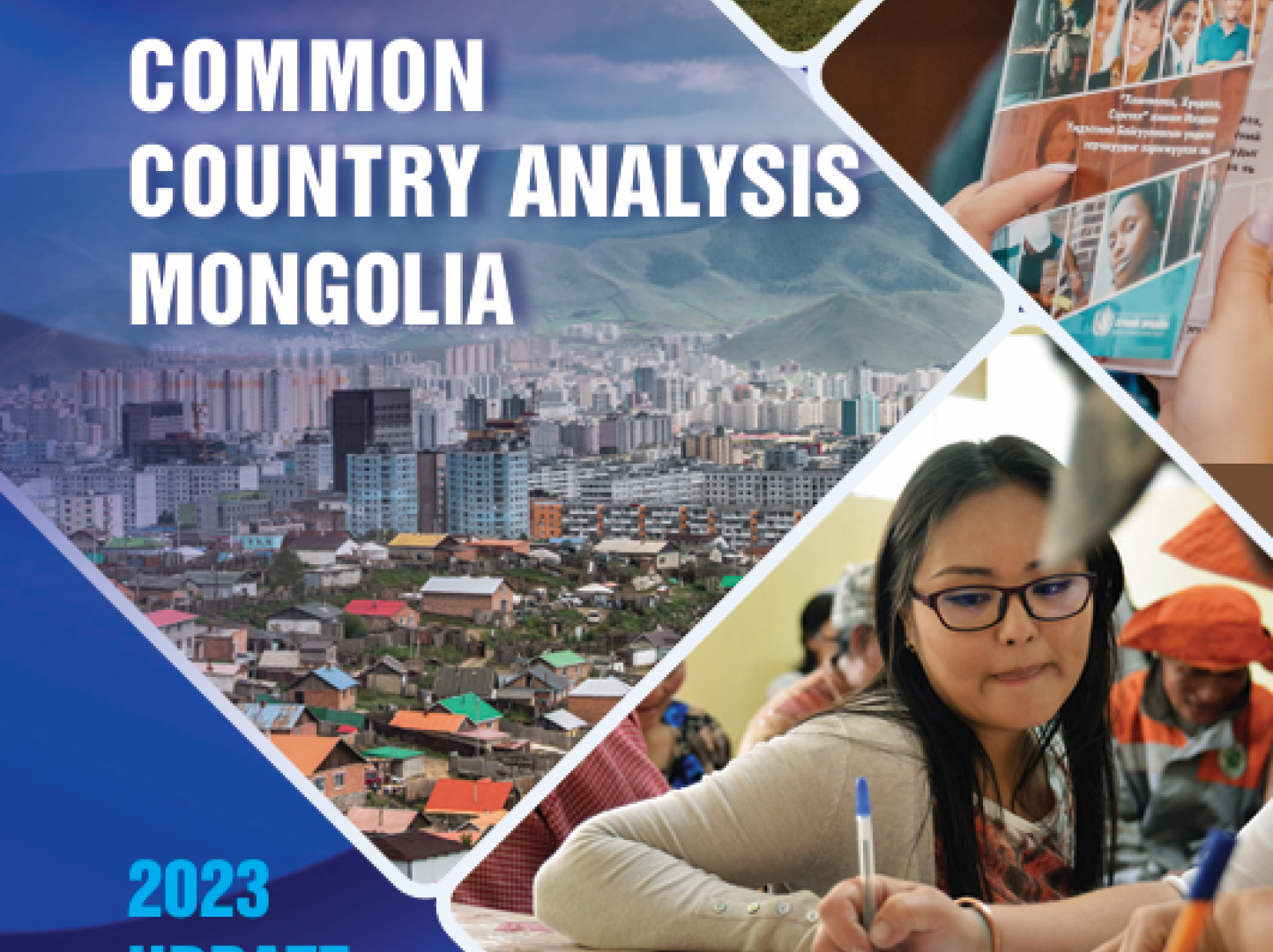MONGOLIA: DZUD RESPONSE PLAN March 2024 (Update)

Mongolia is currently experiencing one of its harshest winters in fifty years due to a particularly strong Dzud, a winter phenomenon characterized by below freezing temperatures which cover grazing areas in deep snow and ice, affecting livestock of which vulnerable herder households are dependent on for their basic needs. Since November 2023, white and iron Dzud conditions have covered over 76 per cent of the country, leading to the deaths of over 5,930,000 (five million and nine hundred thousand) heads of livestock by March 2024 (which increased exponentially from 612,000 number of deaths in February 2024). This is the highest number since 2010, when 10.3 million livestock had perished, representing almost a quarter of all livestock in the country at that time.
The Mongolia Dzud Response Plan, launched on 25 March, identifies over 200,000 people in need, with 77,000 of the most vulnerable people targeted to receive in-kind and cash assistance, for which US$13.7 million is required. These figures represent a more than doubling of humanitarian needs since 19 February (150,000 people in need, 17,000 people targeted), when the first version of the early action and response plan was launched, highlighting the severity of the Dzud.
The Mongolia Humanitarian Country Team (HCT), under the leadership of the UN Resident Coordinator, is collaborating with the State Emergency Commission (SEC) of Mongolia, which is chaired by the Deputy Prime Minister, and the National Emergency Management Agency (NEMA) of Mongolia, to support the people affected by the Dzud. The HCT has been convening regular joint meetings including humanitarian as well as development partners and for the first time, also the Diplomatic Community represented at the level of Ambassadors, as well.
Since December 2023, HCT partners have provided humanitarian support to over 43,000 affected people to reduce the negative impact of the Dzud by fundraising $5.4 million (as of 1 April 2024). This support includes at least $1.3 million in multipurpose cash to 8,500 households (30,700 people). In addition, some 6,500 people were supported with emergency fodder for livestock.












